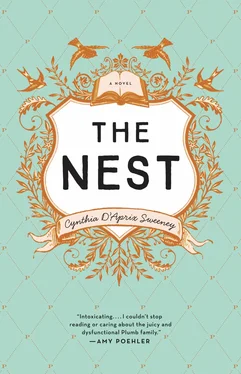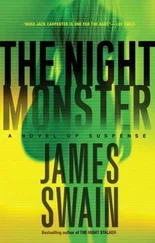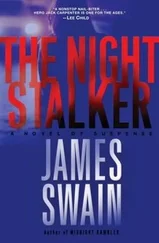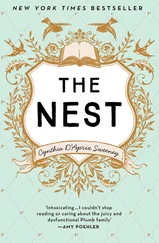“He might be buying drugs,” Louisa said, looking at Nora, worried. “Why else would he be all the way up here right before lunch?”
LEO SIGHED AND HOISTED HIMSELF UP,brushing twigs and dirt off his pants. He sat on a nearby rock, assessing the damage to his scraped palms. Something nagged at him, something about the girls. He’d really spooked them. He assumed his fall was inelegant, but couldn’t imagine that he looked dangerous. Why had they been so spooked? Kids probably weren’t allowed anywhere in the park without a parent these days — not even teens, not even boys. Those girls were probably already looking for a cop.
Dammit, Leo thought. What if they were looking for a cop? What if they thought he was drunk or worse and gave his description to the police who were patrolling for him right now? He couldn’t be caught with drugs. His lawyer had been crystal clear: Keep your nose clean until the divorce decree comes down. No travel. No suspicious spending. No trouble. Leo stood and headed toward the sound of traffic. At the top of the path, he turned a corner and finally knew exactly where he was. Central Park West was straight ahead. He could hail a taxi and go directly to Grand Central and not be late for lunch. If he made a right, he’d be at Strawberry Fields within two or three minutes.
He hesitated. Above him, an ear-splitting screech. He looked up to see three enormous crows, perched on one of the few trees that had already dropped its leaves. They were all squawking at once, as if they were arguing about his next move. Directly beneath, in the midst of the stark and barren branches and at the base of a forked limb, a mud-brown leafy mass. A nest. Jesus.
Leo checked the time and started walking.
Nobody remembered who started calling their eventual inheritance “The Nest,” but the name stuck. Melody was just sixteen when Leonard Plumb Sr. decided to establish a trust for his children. “Nothing significant,” he would tell them repeatedly, “a modest nest egg, conservatively invested, dispersed in time for you to enjoy but not exploit.” The funds, Leonard Sr. explained, would not be available until Melody, the youngest, turned forty.
Jack was the first to argue vociferously against this distribution, wanting to know why they all couldn’t have their share sooner and pointing out that Melody would get the money earlier in her life than everyone else and what was fair about that? But Leonard had given the distribution of funds, how much and when, a great deal of thought. Leonard was — and this was quite literally how he thought of himself, several times a day — a self-made man . It was the organizing principle of his life, that money and its concurrent rewards should flow from work, effort, commitment, and routine. At one time, the Plumbs of Eastern Long Island had family money and a decent amount of real estate. Decades of behavioral blunders and ill-conceived marriages and businesses run amok had left next to nothing by the time Leonard was in high school. He’d wangled himself an engineering scholarship to Cornell and then a job with Dow Chemical during a time he referred to, reverently, as the Dawn of the Absorbency Revolution.
Leonard had lucked onto a team working with a new substance: synthetic polymers that could absorb three hundred times more liquid than conventional organic absorbents like paper and cotton. As his colleagues set to work identifying potential uses for the new superabsorbers — agriculture, industrial processing, architecture, military applications — Leonard seized on something else: consumer products.
According to Leonard’s oft-repeated legend, the business he and his two partners started, advising larger corporations on how to use the new absorbers, was nearly solely responsible for daintier feminine hygiene products (which he never failed to mention in mixed company, mortifying his children), better disposable diapers (his proudest accomplishment, he’d spent a small fortune on a diaper service when the first three were babies), and the quilted square of revolting plastic that still sits beneath every piece of slaughtered meat or poultry in the supermarket (he was not above rooting through the garbage at a dinner party and hoisting the discarded square triumphantly, saying “Mine!”). Leonard built a thriving business based on absorbency and it was the thing he was proudest of, the fact of his life that lent a sweet gleam to all his accomplishments.
He was not a materialistic man. The exterior of his roomy Tudor house was scrupulously maintained, the interior one tick short of slovenly. He was loath to spend money on anything he thought he could fix himself, and he believed he could fix everything. The contents of the Plumb house existed in varying states of disrepair, waiting for Leonard’s attention and marked with his handwritten notes: a hair dryer that could only be held with a mittened pot holder because the cracked handle overheated so quickly (“Use with Care!”), outlets that delivered tiny electric shocks (“Use Upper, Not Lower!”), leaky coffeemakers (“Use Sparingly!”), bikes with no brakes (“Use with Caution!”), and countless defunct blenders, tape recorders, televisions, stereo components (“DO NOT USE!”).
(Years later, unconsciously at first and then deliberately because it made them laugh and was a neat, private shorthand, Bea and Leo would borrow Leonard’s note vernacular for editing manuscripts— use more, use sparingly, DO NOT USE! )
Leonard was a careful, conservative investor in blue chip stocks. He was happy to set aside some funds to provide a modest safety net for his children’s future, but he also wanted them to be financially independent and to value hard work. He’d grown up around trust fund kids — knew many of them still — and he’d seen the damage an influx of early money caused: abundance proffered too soon led to lassitude and indolence, a wandering dissatisfaction. The trust he established was meant to be a soupçon, a little something to sit atop their own, inevitable financial achievements — they were his children, after all — and pad their retirement a bit, maybe help fund a college tuition or two. Nothing so vast as to be truly significant.
Keeping the money tied up until Melody was forty appealed to Leonard for many reasons. He was realistic about the maturity — emotional and otherwise — of his four children: not commendable. He suspected if they didn’t get the money all at once, it would become a source of conflict between those who had it and those who didn’t; they wouldn’t be kind to one another. And if anyone was going to need the money earlier in life, Leonard imagined it would be Melody. She wasn’t the brightest of the four (that would be Bea), or the most charming (Leo), or the most resourceful (Jack).
On the long list of things Leonard didn’t believe in, near the top was paying strangers to manage his money. So one summer evening he enlisted his second cousin George Plumb, who was an attorney, to meet for dinner and hammer out the details of his estate.
It never occurred to Leonard that evening, as he and George leisurely made their way through two Gibson martinis, a superior Pommard, twenty-eight ounces of rib eye with creamed spinach, cigars and brandy, that in less than two years he would be felled by a massive coronary behind the wheel of his scrupulously maintained fifteen-year-old BMW sedan while driving home from work one late night. He never imagined that the bull market of the aughts, riding on mortgage-backed securities, would balloon the trust far beyond his intention, nor could he have foreseen how the staid but eerily prescient George would providentially transfer The Nest to the safer havens of bonds right before the market’s decline in 2008, protecting the capital that the Plumb siblings had watched, during the decade before Melody’s fortieth birthday, inflate to numbers beyond their wildest dreams. He never imagined that as the fund grew so, too, would his children’s tolerance for risk, for doing the one thing Leonard had repeatedly warned them not to do, ever, in any avenue of life, from the time they were old enough to understand: count the chickens before they hatched.
Читать дальше
Конец ознакомительного отрывка
Купить книгу












